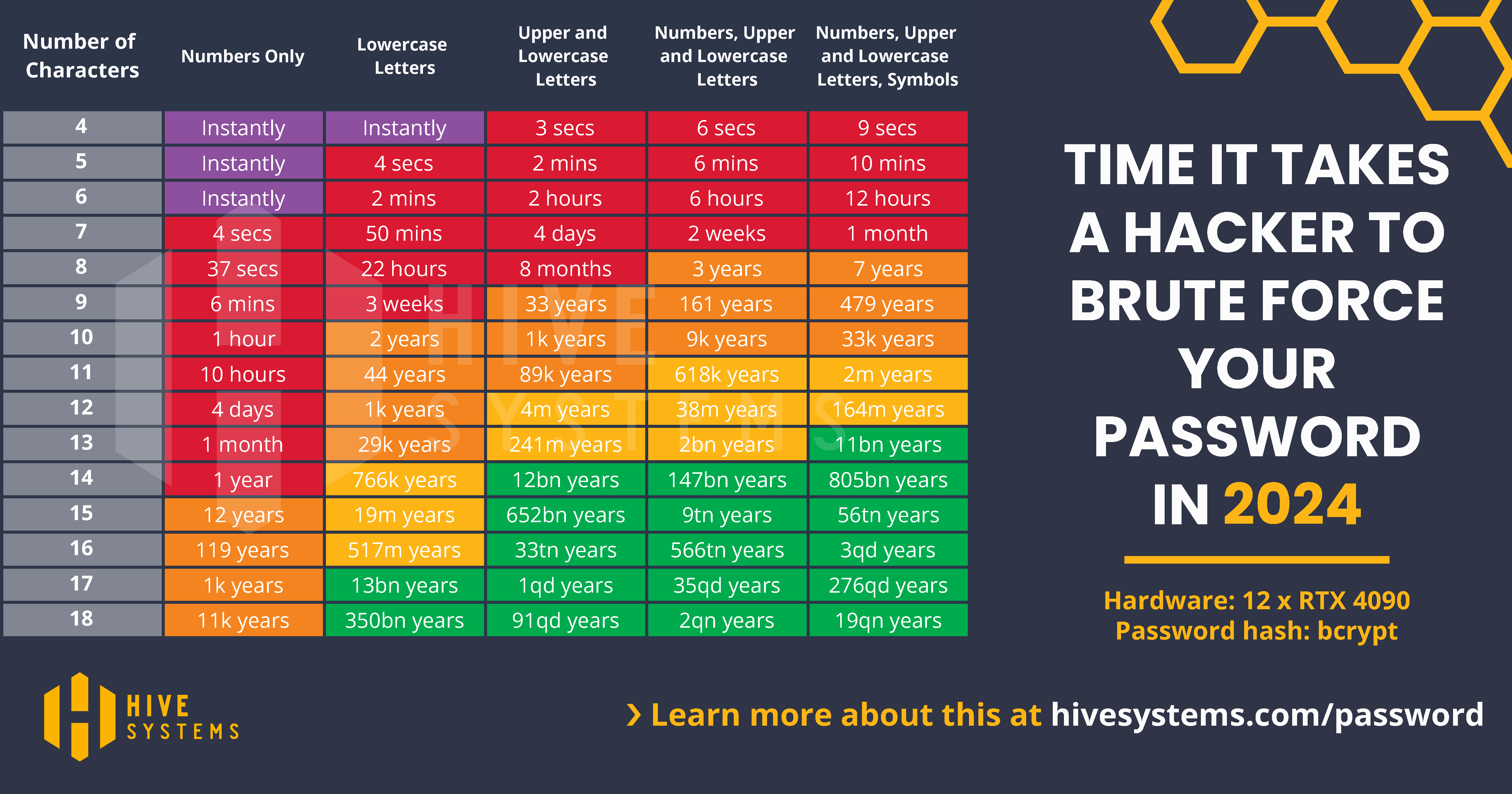Passwords are the first line of defense against cybercriminals. Strong passwords are essential to prevent unauthorized access to our personal and business data.
Creating Strong Passwords
- Length: Aim for at least 12 characters. Longer passwords are harder to guess or crack which makes it significantly more difficult for cybercriminals.

- Complexity: Include a mix of uppercase and lowercase letters, numbers, and symbols.
- Avoid Common Mistakes: Don’t use easily guessable passwords like “password123” or birthdays, which are common targets for hackers.
- Avoid Personal Information: Don’t use easily identifiable details like names, pets, or birthdays.
- Use Unique Passwords for Every Account: Using the same password across multiple platforms is akin to using the same key for every door. Protect your data by creating unique, one-of-a-kind passwords for each of your online accounts to ensure that cybercriminals cannot access your other accounts. A password manager makes this easy.
Safe Password Practices
- Enable Two-Factor Authentication (2FA): Two-factor authentication adds an extra layer of security by requiring a second form of verification, such as a push sent to your phone. It’s important to enable 2FA on financial accounts like bank accounts or credit cards and administrator accounts to prohibit cybercriminals from gaining access .
- Use a Password Manager: Managing numerous complex passwords can be overwhelming. A password manager securely stores your credentials, generating strong passwords and auto-filling login information. The University offers Keeper Password Manager for free to all faculty, staff and students. Once you’ve signed up, you can also share this service with up to 5 family members.
- Don’t share your passwords: Never share passwords unless through a password manager.
- Change your passwords regularly: Regularly review and update your passwords to stay ahead of evolving threats.
By following safe password guidelines, you can significantly reduce the risk of unauthorized access to your online accounts and protect our house.
Additional Resources:
Visit our NCSAM page for more information and games related to this week’s tip.